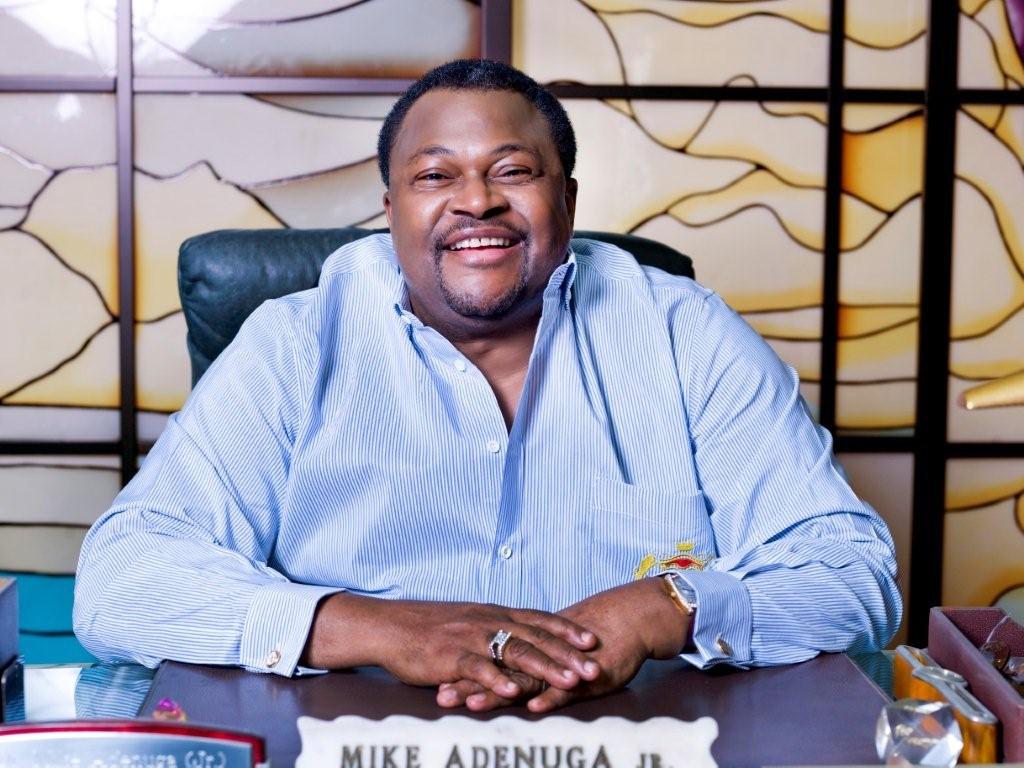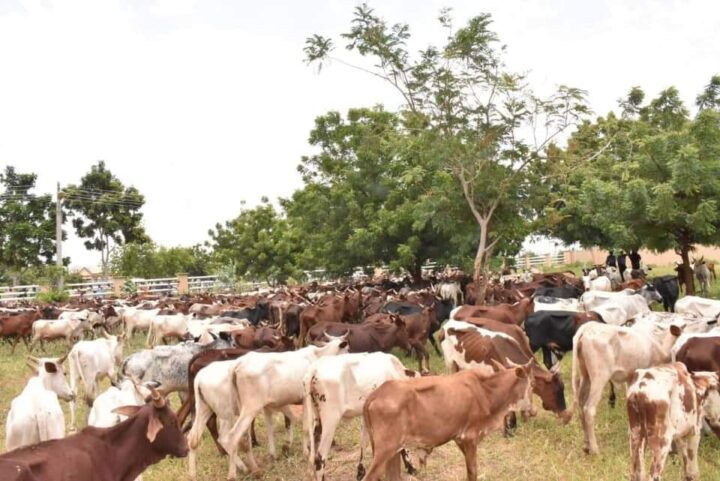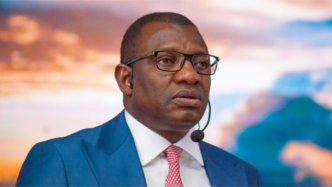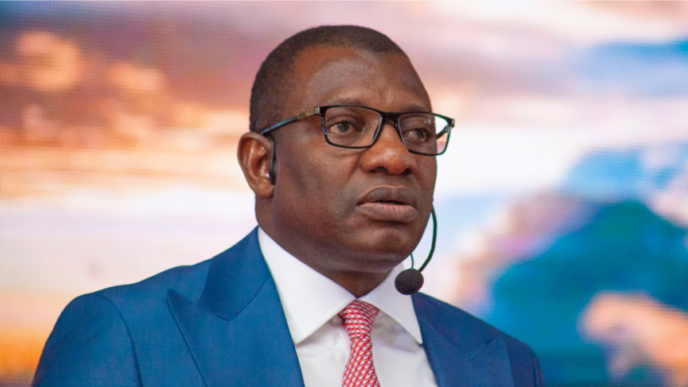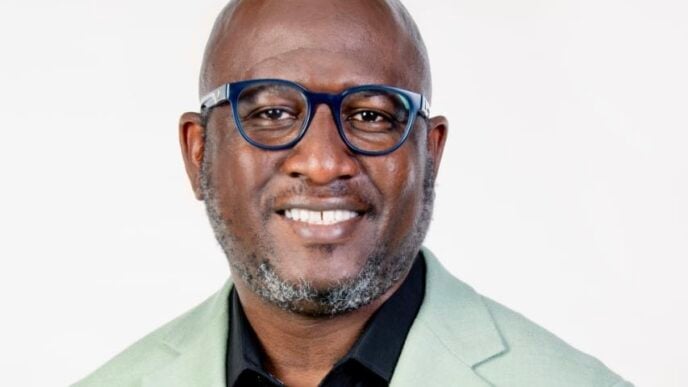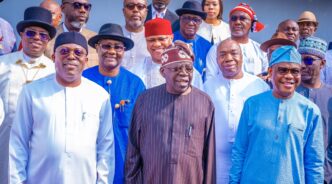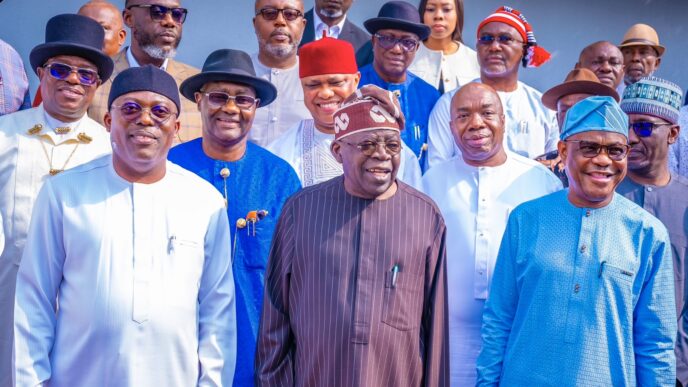BY MICHAEL ABIMBOYE
In the twilight of August 2003, Nigerians were still paying the price of exclusion as a mobile phone was not a necessity, but a status symbol of privilege. To own one was to join an exclusive club where SIM cards cost more than a motorbike, and every minute on a call was a reminder of how the system was designed for the few, not the many. Into this rigid, uneven world came a force that would disrupt the script. Dr Mike Adenuga Jr., GCON, is the billionaire entrepreneur with a reputation for audacity and risks. His weapon was a new telecommunications company with a daring promise: Globacom. Twenty-two years later, the green-and-white brand has not only endured but redefined the contours of communication in Nigeria and across West Africa. On the heels of Glo’s 22nd anniversary celebration, the story of its rise doubles as the story of a nation’s leap into a connected future.
“Cometh the hour, cometh the man,” goes the timeless phrase. Few people embody it better than Adenuga. In the early 2000s, Nigeria’s telecom landscape was a fortress controlled by foreign incumbents. They insisted per-second billing (PSB) was “impossible” until 2007. Nigerians, hungry for cheaper access, had little choice but to endure. Adenuga thought differently; his instinct was that the only way to win loyalty in a sceptical market was to democratise access. Globacom arrived in August 2003 and immediately rewrote the rules, launching per-second billing from day one. In an instant, what was once considered impossible became the new normal. Millions who had been locked out of connectivity found a door flung open.
Globacom’s story is not only about pricing models, but also about vision. Within its first decade, the company undertook one of Africa’s boldest private infrastructure projects, the Glo-1 submarine cable. Stretching from Bude in the United Kingdom to Lagos and branching into Ghana, the cable became the first privately-owned undersea cable in Africa. It was a gamble on the future, while competitors hesitated. Adenuga invested billions to ensure Nigeria accessed direct, high-capacity connectivity to Europe. The result was transformative with faster internet, lower latency, and the foundation for Nigeria’s tech and entertainment revolutions. In the years that followed, startups, banks, and creatives alike would find themselves riding on the bandwidth that Glo had envisioned when others only talked.
Advertisement
Beyond infrastructure, Glo cultivated a cultural identity as the “Grandmasters of Data.” This was more than a tagline; it was a reflection of its embrace of Nigerian realities. When competitors targeted elites in city centres, Glo went grassroots, extending coverage to semi-urban and rural areas. Its campaigns were studded with stars, musicians, actors, and comedians. This initiative created a bridge between telecom technology and cultural pride. To millions, Glo was not just a network, but an emblem of indigenous possibility. A business entity wholly owned by a Nigerian had compelled global giants to adjust, compete, and lower their tariffs. Adenuga’s bet on affordability not only grew his subscriber base; it gave ordinary Nigerians the dignity of choice.
Behind the green glow of the brand lies the quiet but imposing figure of Dr Mike Adenuga Jr, GCON. Known for his preference for action over publicity, Adenuga built his empire on calculated risk. From oil exploration through Conoil to banking and real estate, his ventures have always carried the mark of bold timing. Yet it is in telecommunications that his name resonates most profoundly.
Associates often describe him as a man with a “borderless vision.” He refuses to accept limits, whether regulatory, technological, or financial. Once he is convinced that the opportunity serves a larger purpose. With Glo, that purpose was simple: Nigerians deserved the same quality of service as the rest of the world, delivered at a price they could afford.
Advertisement
In addition, it’s been in motion for over two decades. Glo’s contributions have extended far beyond call rates and internet bundles. The company has been a steadfast patron of Nigerian sports and entertainment. From sponsoring the Nigerian Premier League and CAF tournaments to elevating comedy and music festivals, Glo’s green footprint is woven into the nation’s cultural fabric. Its Corporate Social Responsibility (CSR) initiatives have supported education, healthcare, and community development, reinforcing Adenuga’s belief that businesses must create shared value. When the Super Eagles triumphed or when Nollywood stars walked red carpets, Glo was often there, reminding Nigerians that the brand was not just selling airtime but celebrating identity.
It’s been twenty-two years of milestones from a modest subscriber base in 2003; Glo has grown into a behemoth serving tens of millions across Nigeria, Ghana, and Benin. It has consistently ranked among Africa’s top telecom operators, challenging rivals with aggressive innovations in data pricing and product bundling. The company’s resilience is particularly notable given the headwinds such as regulatory hurdles, foreign exchange fluctuations, infrastructure vandalism, and the sheer cost of powering thousands of base stations in a country where reliable electricity remains elusive. Yet Glo continues to push boundaries, recently investing in 4G and preparing for 5G deployments to serve a generation that demands speed and reliability in everything from streaming to fintech, which has boosted financial inclusion across the board with its MoMo PSB.
Perhaps the most powerful dimension of Glo’s 22-year story is symbolic. In a sector where foreign ownership is dominant, Glo stands as proof that an African company can compete toe-to-toe with global giants. Its green brand is more than corporate identity; it is a banner of national pride, and this symbolism matters deeply. It signals to young Nigerians that entrepreneurship is not limited by geography. It affirms that local capital and vision, when paired with resilience, can create institutions that shape entire industries. Adenuga’s Globacom is a living testament that Nigeria is not merely a consumer of global trends, but a contributor and competitor.
Furthermore, the horizon is laden with a great future, as Globacom crosses the 22-year milestone; the challenges of the future are as daunting as those of the past. Data consumption is exploding, customer expectations are higher than ever, and the competition remains fierce. The path forward requires continued investment in broadband infrastructure, expansion into underserved rural communities, and alignment with global trends in green energy and digital services. If history is a guide, Globacom is unlikely to shrink from these challenges. Adenuga’s philosophy has always been that opportunities emerge in crises, and innovation thrives under pressure. The same daring spirit that defied the telecom establishment in 2003 still animates the company’s leadership today.
Advertisement
In many ways, Glo’s 22nd anniversary is not just a moment to look back but a call to look forward. The world is changing with faster networks, smarter devices, and a digital economy demanding inclusivity. For Nigeria, connectivity remains the bridge between poverty and prosperity, exclusion and participation. When it matters most, cometh the hour. The need for affordable, reliable, and indigenous telecom solutions is as urgent as ever. The man who answered the call 22 years ago still presides with bullish confidence, ensuring that the network he built continues to dream in green.
In a nutshell, the history of Globacom is the story of a nation’s hunger for access, a visionary who dared to believe that Nigerians deserved better, and a brand that became part of everyday life. At 22, Glo is not merely a telco; it is a movement and a mirror of possibility. Dr. Mike Adenuga Jr. may not often court the limelight, but his legacy already gleams in every call made, every message sent, every download completed on the Glo network. As millions celebrate this anniversary, the words ring true once more: cometh the hour, cometh the man.
Michael Abimboye is a journalist and communications specialist based in Lagos, Nigeria.
Advertisement
Views expressed by contributors are strictly personal and not of TheCable.
